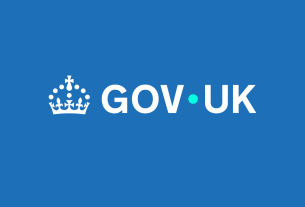Abuja, 19 June – The International Organization for Migration (IOM) and Cisco signed a Memorandum of Understanding (MoU) to provide digital skills and technical education to displaced persons and host communities in North-eastern Nigeria.
The programme is expected to launch at three pilot schools in Borno State, where more than 2.3 million people are currently displaced.
“Durable solutions in the North-east are possible and can be achieved through people-centred transformative initiatives, such as the one we are signing today,” said Laurent de Boeck, IOM Nigeria Chief of Mission. “This MoU is a testament of our shared vision of leveraging digital skills to help displaced people in North-eastern Nigeria achieve socioeconomic resilience.”
In its pilot phase, 150 internally displaced persons (IDPs) and host community members will benefit from digital upskilling opportunities through Cisco Networking Academy, one of the world’s longest-running IT skills-to-jobs programmes. Cisco and IOM will also work closely with Federal, State and Local Government authorities to align with country curricula and thus maintain the sustainability of the initiative.
“Technology is an equalizer, and it’s crucial for us to develop initiatives that make it accessible to all. Together with IOM, our aim is to equip people with digital skills that open new opportunities for them in the job market. That way, we can help alleviate poverty and address prolonged crises,” said Brian Tippens, Senior Vice President and Chief Social Impact Officer at Cisco.
Clayton Naidoo, Senior Director and Cisco Country Digital Acceleration programme (CDA) lead for Africa said, “To further connect pilot participants, Cisco will establish three Digital Learning Labs equipped with its conferencing systems, servers, and networking demonstrations. In addition to providing digital skills training, each lab will be connected to Cisco’s network of EDGE Centres (Experience, Design, Go-to-Market and Earn) to support Small, Medium and Micro Enterprises in the technology sector throughout Africa with business mentoring, incubation and training opportunities to help advance their market access and exposure.”
The agreement provides a framework for further collaboration between IOM and Cisco to provide digital upskilling opportunities to communities in crisis. This includes the construction and equipment of schools and learning centres, the upgrading of teachers’ competencies, as well as the development of further programmes with the private sector to provide on-the-job training opportunities for displaced youths.
Addressing the pressing livelihood needs for displaced people is crucial for moving from emergency relief to development-oriented strategies aimed at long-term stability. Central to this transition is education, which empowers displaced populations to rebuild their lives. By focusing on educational opportunities along with upskilling and livelihood support, this multifaceted approach equips individuals with the necessary tools to sustain themselves and their communities.
Notes to Editors
Recognizing the critical role of the private sector in achieving sustainable migration outcomes, IOM actively seeks to collaborate with businesses across various industries. These partnerships leverage private sector innovation, expertise, and resources to enhance the economic, social, and cultural integration of migrants and to address challenges in migration management.
About the Cisco Country Digital Acceleration (CDA) programme
Cisco’s CDA global programme collaborates with government and private sector leaders to build sustainable, secure, and inclusive communities powered by ethical and innovative technology solutions. With more than 1,600 active or completed projects in 50 countries, it is creating new value for participating countries, their industries, and their residents.
Learn more here: Cisco Country Digital Acceleration Programme
***
For more information, please contact
For IOM: Francois-Xavier Ada-Affana, [email protected].
For CISCO: Mariaan Christian, [email protected]



